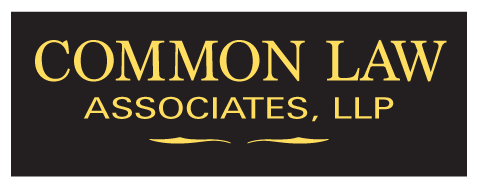we can help . . .
Remove 2nd Mortgage
Wipe Out Credit Card Debt
Eliminate Medical Bills and Loans
Prevent Foreclosure
Keep Retirement Savings
Stop Creditor Phone Calls
WHAT IS THE BANKRUPTCY AUTOMATIC STAY?
Probably one of the best effects of filing Bankruptcy is that once the paperwork is filed, an automatic stay prevents any and all creditors from taking any action against you. What this means to you, no more harassing phone calls, no more letters from creditors, collection agencies or any other person to whom you owe a debt. With certain exceptions, for debts that are not dischargeable in bankruptcy, once you file, you will not hear from them again. Contact Ed Duvall or Eric Levitt of Common Law Associates now, to get you back on track, safeguarding your assets and your future.
Chapter 7
What is a Chapter 7 Bankruptcy? A Chapter 7 bankruptcy, also known as a liquidation, is a way that you can get out from under the debts that are realistically un-payable. Many persons who have either lost a job or suffered some other crisis that has caused a loss in income for a moderate amount of time will find themselves in the following situations; Credit card companies have increased their rates and have added late fees and penalties, Mortgage companies are demanding immediate payment of past due amounts along with additional interest and penalties with the threat of foreclosure in the event you are unable to become current, Medical bills that are not covered by insurance, and seem to keep piling up. Regardless of how you got into the situation, there is help for you to get back the peace of mind you are entitled to. Contact us now, so we can get you back on track, safeguarding your assets and your future.
Chapter 13
Unlike a Chapter 7 Bankruptcy where many of your debts are discharged completely in a relatively short amount of time, a Chapter 13 Bankruptcy debtor will pay back all or a portion of debts owed over a 3 to 5 year period depending on certain factors. In some instances, a person’s only option is to file a Chapter 13 Bankruptcy if it is determined that due to the high amount of their income, they have the means to pay back a portion or all of certain debts. After we review all of your financial records, we may determine that due to the amount of income you currently have, that you are not entitled to file a Chapter 7, but must instead file a Chapter 13. This is due to what the United States Bankruptcy Code calls the “means test”. We calculate your income and expenses based on the guidelines of the Bankruptcy Code and if after the calculations are made it is determined that you have remaining disposable income, then that money will be sent to a trustee to distribute to your creditors over a period of time. Put simply, if after our calculations it is determined that you have $200 dollars a month remaining, and you are to pay that amount monthly over a period of 5 years, you will have sent a trustee around $12,000 dollars (60 months x $200 per month). If in this example you had $24,000 total debt, owed to say credit cards, and this was your only debt listed in your bankruptcy, the creditors would be getting half of their money owed after the five years, upon which time the total debt would be discharged. Please note that there are also certain administrative fees that are also deducted by the trustee, but this gives a basic example of how the process works. Contact us now, so we can get you back on track, safeguarding your assets and your future.

